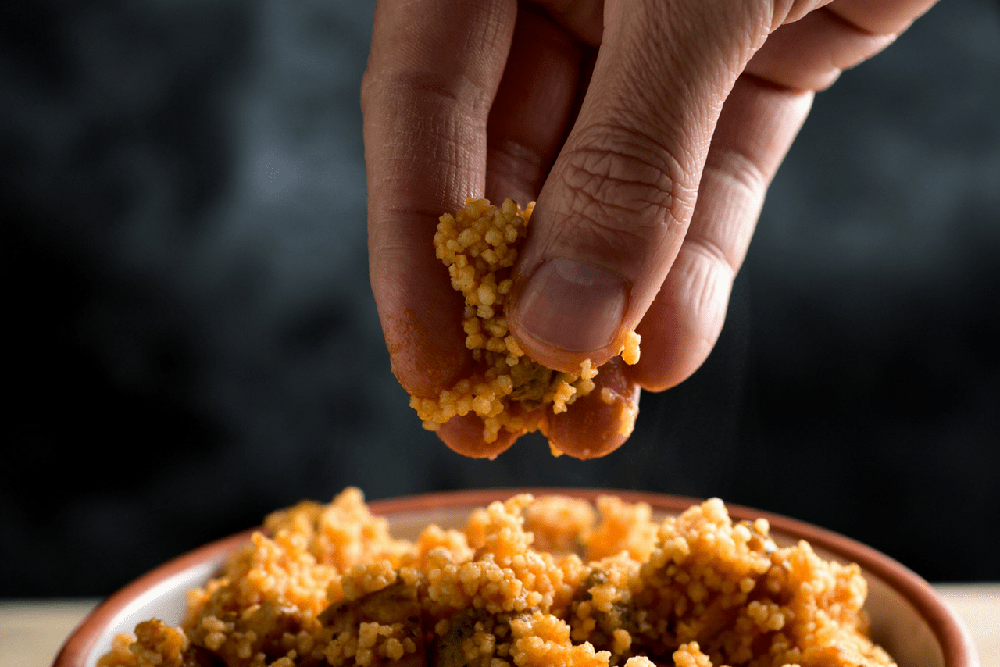Why Should You Eat With Your Hands?
For better digestion and a healthier relationship with your food

Modern cultures are shifting away from eating with their hands to using cutlery, not to be deemed uncivilized, barbaric, or unhygienic. Giving up on this time-tested practice is unknowingly disconnecting us from our food and contributing to our inability to feel satiated and not overeat at every meal. Touching the food communicates to the brain and digestive system information on what is coming – about the texture, quantity, moisture content, temperature of food, etc., so that the body knows what to expect and which enzymes to secrete.
How uncomfortable does it make you feel to watch someone eat a sandwich or a slice of pizza using a fork and knife? It’s somewhat ridiculous if you think about it. But unfortunately, these alienated behaviors are being normalized nowadays, and the natural tendency to touch our food and engage all our senses in eating is being rendered awkward.
Ayurveda encourages us to eat with our hands because they are considered an extension of the Pancha Mahabhuta, or nature’s five elements. Each of the fingers corresponds to an element that governs a specific sense organ and its action. The thumb represents fire (sight), the index finger represents air (touch), the middle finger is space (sound), the ring finger is earth (smell), and the pinkie represents water (taste). Eating food with your hands involves all your senses:
Eyes | looking at your food enables you to measure the colors, textures, amount of food on your plate, and whether it is raw or cooked. It also makes you aware of the size of the bites you are scooping.
Hands | touching your food prevents you from burning your mouth! You can evaluate the temperature of the food, its texture, oiliness, dryness, moistness, etc.
Ears | hearing the sound your food makes when you touch it gives you an idea of how moist or dry it is. Similar sounds can be observed when you gulp, crunch, or bite it.
Nose | smelling the food on your plate, on your fingers, in your breath, your mouth, or sweat indicates the potency of certain ingredients, be it spices, onion, garlic, fish, or other foods.
Tongue | tasting your food with awareness enables you to understand its qualities and effect on your body and mind by analyzing its Shadrasa, or six tastes. The mouthfeel and sensation it awakens inside the mouth is another indication of its action.
How Does Eating With The hands Affect Health?
It strengthens digestion and immunity
The nerve endings in our fingers carry not only intelligence but also skin flora or microbiota, beneficial microbes found on our palms and fingers that are there to protect us from harmful environmental bacteria. When our hands come in contact with food and make it to the mouth, we ingest some of that flora. This microbial diversity results in a more resilient body and a stronger digestive system. It is needless to say that your hands should be thoroughly washed before digging in, and it’s recommended to use only one hand for eating while keeping the other hand clean in case you need to grab a tissue or pour a glass of water.
It prevents overeating
Eating with the hands requires more effort and attentiveness to the task at hand. Not using utensils forces you to take smaller bites, eat slower, and be more present. It takes twenty minutes for the brain to signal to the stomach that it is full, hence why eating fast often leads to overeating. Slowing down prevents that from happening, and by dropping your fork, you have no choice but to savor your food slowly without overstretching your stomach.
